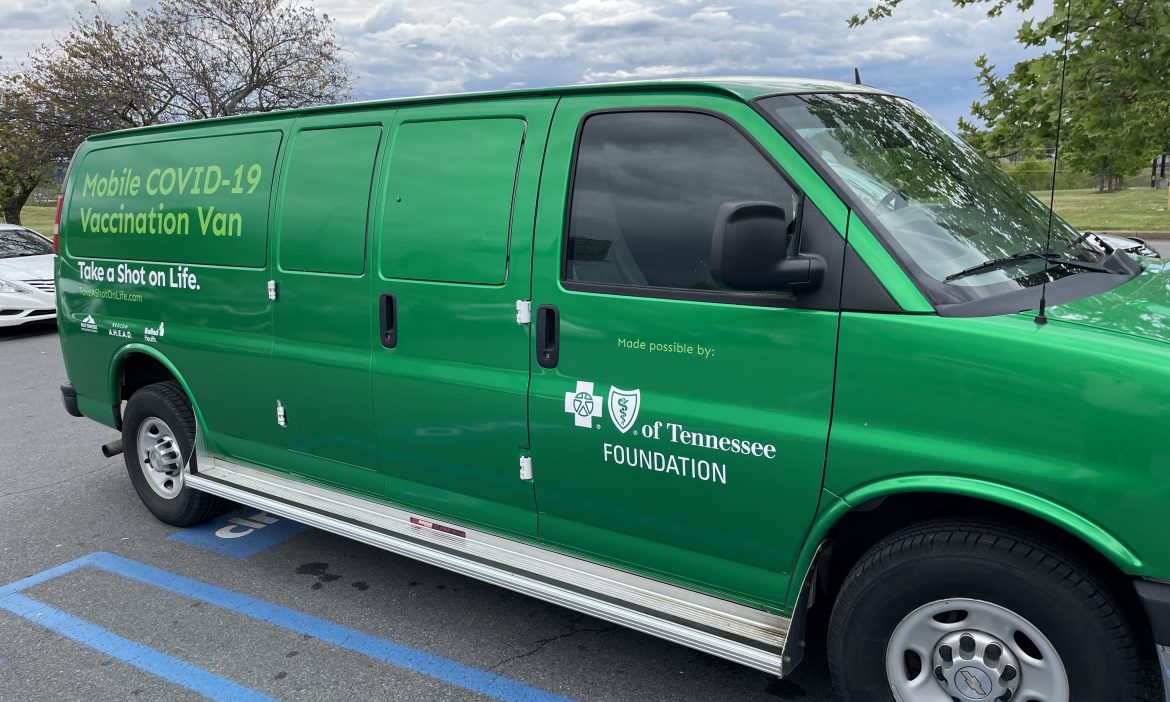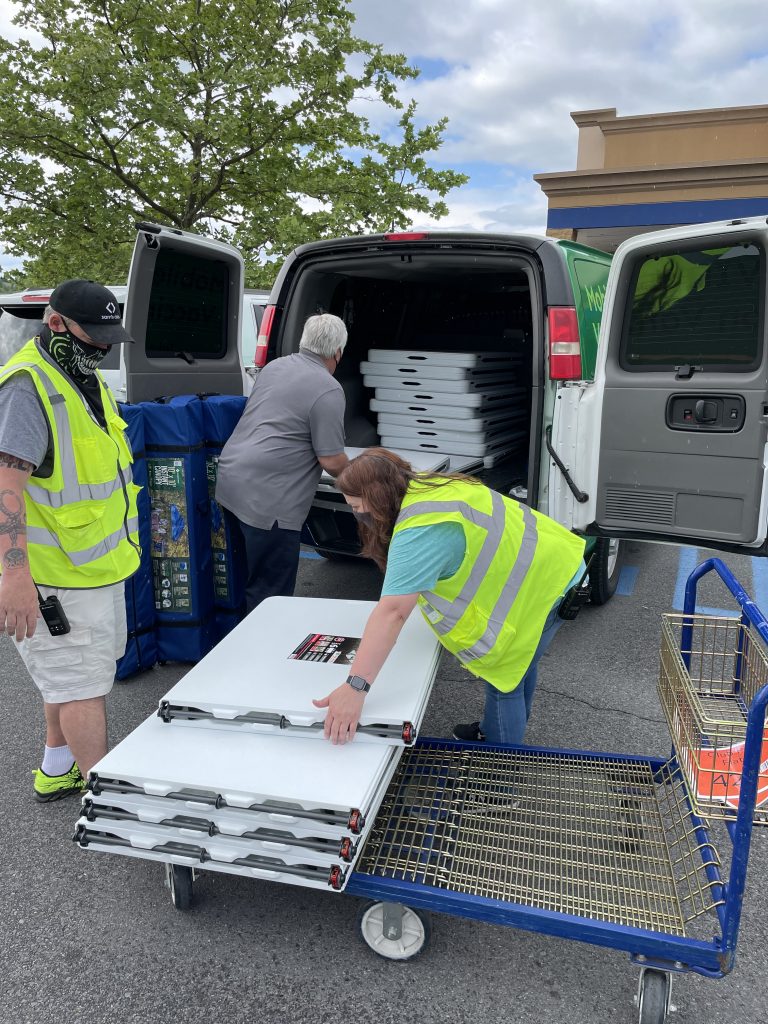BCBST Staff, BCBST News Center, June 3, 2021

KEY TAKEAWAYS
- The BlueCross BlueShield of Tennessee Foundation awarded a $541,700 grant to promote COVID-19 vaccinations in Northeast Tennessee
- The grant funds educational outreach and vaccine delivery to the area’s underserved populations via mobile vaccination vans
- This grant was part of $1.7 million awarded statewide to help communities promote and support COVID-19 vaccinations
As COVID-19 vaccines became available earlier this year, leaders in Northeast Tennessee realized they had a problem. A survey showed that a significant portion of the area’s population planned to either wait to get vaccinated or were unsure if they would get a vaccine at all. That would make reaching herd immunity almost impossible.

This realization spurred action, and now hope for the region is coming in the form of three vibrant green mobile COVID-19 vaccination vans with the words “Take A Shot On Life” emblazoned on the sides. Each van is staffed with a pharmacist and two nurses, and they are now being deployed throughout the region.
The “Take A Shot On Life” campaign is part media campaign and part mobile vaccination effort aimed directly at the 512,000-plus people living in the eight-county region of Northeast Tennessee. Funded in part by a $541,700 grant from the BlueCross BlueShield of Tennessee Foundation, the campaign is a collaborative effort with the First Tennessee Development District Foundation and other regional partners like Region A.H.E.A.D., Ballad Health, East Tennessee State University (ETSU), and the Regional DEI Alliance.
The dual goals of “Take A Shot On Life” are to reduce barriers to COVID-19 vaccinations and increase vaccination levels among the populations living in the region.
Mark Stevans, the director of special projects at the First Tennessee Development District in Johnson City, says that the survey conducted at the beginning of the year was critical to developing an effective strategy to promote vaccination.
“The survey identified the problem we faced in terms of vaccine hesitancy,” Mark says. “In addition, it broke down that hesitancy by age group, race and location. As a result, we were able to target specific areas in the populations we needed to reach.”
With that information, campaign partners were able to strategically map out where to send the mobile COVID vaccination vans and direct educational messaging for the local population of vaccine “waiters” and the “undecided.”
“The survey also showed that even among the hesitant, there was a desire to protect their loved ones ,” Mark says. “That helped inform the messaging used in our efforts.”
Campaign organizers coupled an efficient vaccine distribution plan with the strategic effort to turn to local partners and uncover pockets of underserved communities who were disproportionately affected by COVID-19.
“We’re partnering with the Diversity and Inclusion Alliance here in the region to target minority populations through churches and other civic organizations,” Mark explains. “Our outreach efforts include leaders from these communities to help spread the word about the need to get vaccinated.”
“We’re also putting together events where networks of churches will carry out bus campaigns to bring their parishioners to a central point,” he says. “This could be a larger church that has a bigger parking lot where multiple churches could feed into that site. Through this effort, we’re able to deliver vaccines to people in a trusted environment.”
The campaign’s first events took place May 15-17 at Friendship Baptist Church in Johnson City and Kingsport’s Greater Life Church. Another vaccination event was held May 23-24 at St. Dominic’s Catholic Church in Kingsport and Boones Creek Christian Church in Boones Creek. Hundreds of residents received vaccines at the events. The vans will also be deployed to area employers to provide much-needed vaccines to members of their workforce who wish to receive them.
In addition to mass events at churches, Mark says the “Take A Shot On Life” campaign is targeting populations who don’t have reliable or regular transportation. And, agency staff contacted more than 2,000 seniors who have been identified as homebound.
“We’re trying to remove barriers to getting vaccinated and make it as easy as possible,” he explains. “If you don’t have the time or don’t have a way or means to get to one of the vaccination centers, we’re going to bring the vaccine to you or as close to you as we possibly can.”
Mark says the resilience and compassion he has witnessed among private industries, economic development organizations and community leaders working together to protect the region’s economy and population is heartening.
“There are very few silver linings to COVID, but that is one of the biggest ones,” Mark says. “The pandemic has taken a huge toll on our population, but seeing groups with very different interests really working together has been encouraging and gratifying.”
